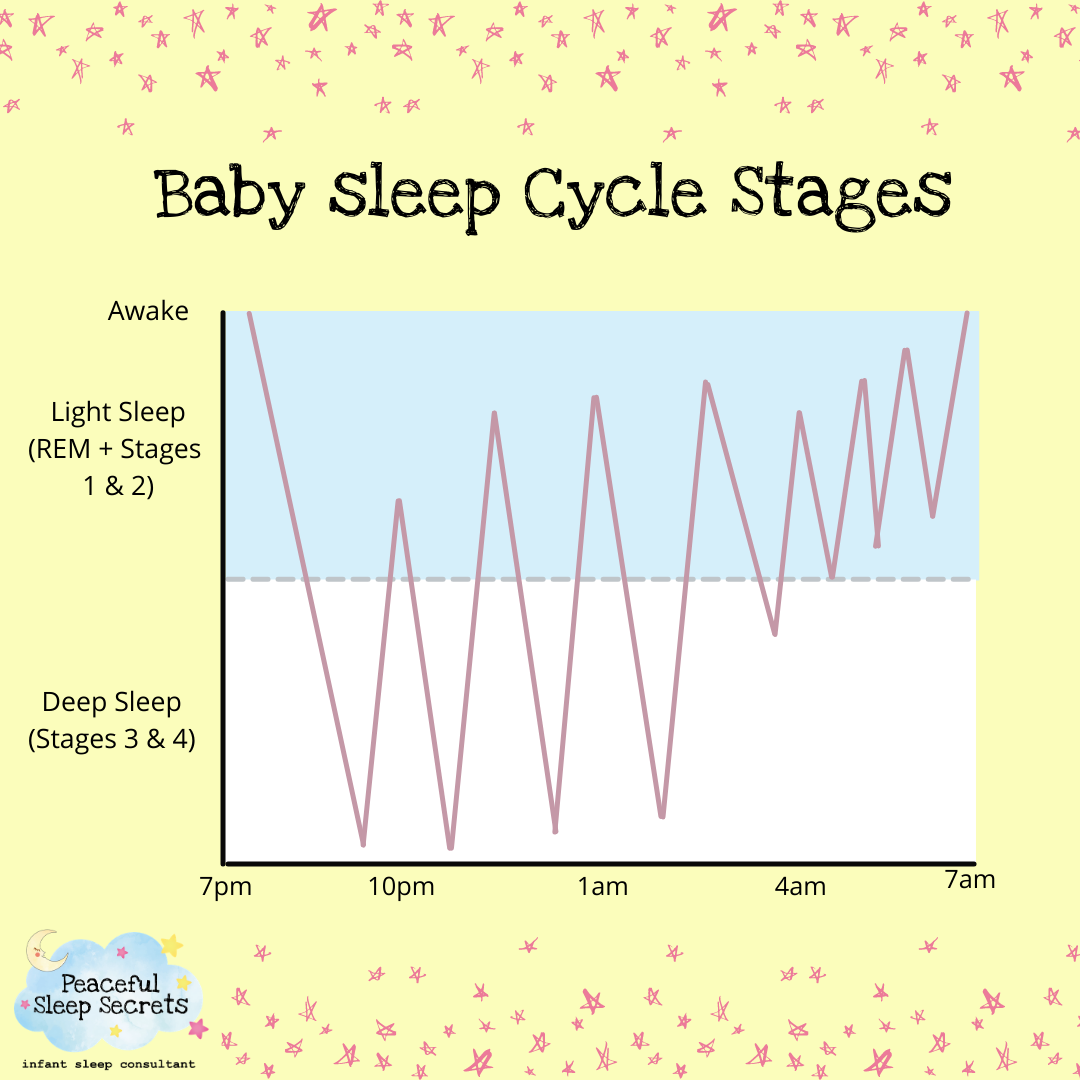Coping with the 4 Month Sleep Regression

Congratulations! You’ve survived the hazy newborn 4th trimester and things will get easier from here right?...
Well, the answer to that in many respects is 'yes', but there are also many developmental changes that happen now which could potentially make things get a little worse before they get better.
Your baby is developing and growing at a faster rate than ever. There are major changes happening right now and these affect your little ones perspective of the things around him, how he perceives the world, how his body moves, how he looks and even the structure of his sleep cycles. Let me explain what people refer to as ‘the 4 month sleep regression’.
A very young baby only has two sleep stages: quiet and active. The quiet stage is a deep sleep which they can be more difficult to wake from. The active stage is when they might be grunting, moving and even crying out in their sleep. Newborns can be very noisy sleepers, particularly in those early hours.
However, the sleep cycles change when a baby is around 3-5 months of age and become more like the sleep cycles we have as adults. This is a permanent change. Now your baby will have 4 sleep stages plus REM sleep (the light stage in which we dream). Babies can take a while to adjust to their new sleep stages as they are not used to transitioning between them.
Often a baby who WAS sleeping well as a newborn, may start waking more often as they transition into lighter sleep. This is also known as the 4 month sleep regression!
The problem often occurs when a baby of this age keeps waking and doesn't know how to get back to sleep independently so calls out to their caregiver for help. How your baby falls asleep initially at bedtime is extremely important at this age. This is because your baby will expect you to intervene every time they wake and help them back to sleep by doing whatever you did to get them to sleep at the start of the night.This can be exhausting for parents who are up almost every hour resettling their baby. There are many ways in which you can help your child settle independently and it is important to select a method that’s going to work for your family and suit your child’s temperament. Not every method will work with every child.

Once your child can settle to sleep independently, then when they do wake in the night they will just drift back off into the next sleep cycle rather than calling for you to rock, feed or cuddle them back to sleep.
So, how else can you help your baby adapt to his new sleep cycles and minimise night waking?...
Make sure baby’s tummy is full
Continue to feed regularly during the day. Your baby has woken up to the world and will be taking all his surroundings in. This might distract him from taking a full feed and sometimes this can result in extra feeds at night. If this happens to you, try feeding in a quiet room where there is little going on so your baby gets maximum calories during the day.
Introduce a bedtime routine
If you haven’t already then now is a great time to introduce a simple bedtime routine. Babies learn through repetition and repeating the same small steps in the same order each night before bedtime will help your baby recognise it’s time for sleep. Around 7pm is a good time because this is when babies sleepy hormone (melatonin) is at its highest so they are likely to drift off much easier.
Work on self settling
As I mentioned above, if you are helping your baby get to sleep in some way, such as feeding, rocking or cuddling to sleep, they will now expect this every time they wake. Teaching your baby to settle independently (also known as self settling) is a life skill and something that the vast majority of babies need to be taught by their caregivers. There are very few little ones that learn this skill by themselves without the help of a parent. Once your child has learned this skill it is a huge leap in their development and they will be able to sleep for longer periods without the need for your input.
Prevent overtiredness
Your baby will now be able to stay awake for longer periods of time but it’s still really important that they get adequate sleep during the day as naps directly affect the quality of night sleep. If your baby does become overtired then his body will produce extra adrenaline (cortisol) making it harder for him to settle to sleep and stay asleep. Naps can still be very varied in length at this age and don’t tend to become longer until around 5 months when your baby may settle into a clearer 3 nap routine. Ideally a 4 month old baby should be having around 3.5-4hrs of day sleep and around 14.5 hours of sleep in 24 hours. Wake window (the time a baby spends awake between naps) should be between 75-120 minutes. Babies of this age can vary greatly so you may need to tweak wake windows until you find the perfect fit for your baby.
As your baby approaches 4 months, remember that not all parents will notice the 4 month sleep regression. Some babies cope really well with these developmental changes so please do not fear what may be to come.
If your baby does struggle around the 4 month mark, or at any time, and you would like some support, then please do reach out. I'm always here.

The strategies in my FREE eBook are FANTASTIC for getting your whole family a great night's sleep. Download NOW and watch your child’s sleep improve instantly!
